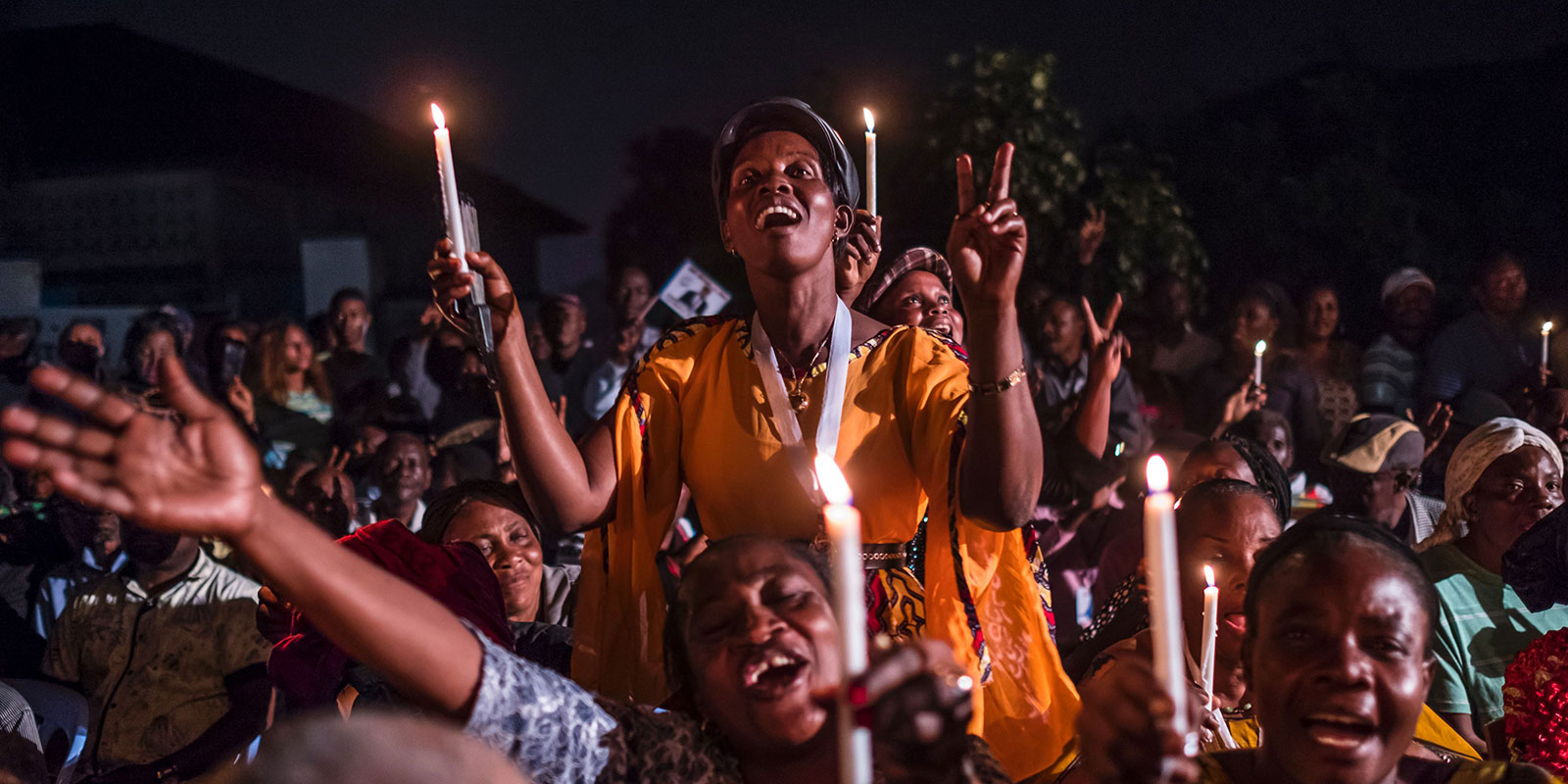The Economic Community of Central African States (ECCAS) has launched a competition for finding an anthem and a motto for the Commission. This will help to finalise the reform of ECCAS which is aimed at the acceleration of the integrating agenda based on clearly identified shared values, around unifying regional symbols.
In the end what is sought above all in the architecture of these competitions is that these regional emblems are truly symbolic #ECCAS
Tweet
Choosing to provide the Central Africa region with an anthem and a motto through a competition shows the will of the ECCAS Commission to reach the greatest number and to deploy a vast network of mixing designers, researchers and “simple” amateurs for the acquisition of these emblems. Through these competitions ECCAS wishes to collect projects, which integrate the specific variety of the culture of the regional geographies, with the disciplinary cultures that represent the sciences and techniques of music, poetry, oratorical art, etc.
The Commission also hopes that these competitions will provide the Community with emblems that speak to all categories of the population: young people, those excluded from the culture of learning, those excluded from the culture of adults, those who are followers of popular culture, etc. Finally, the Commission is urged by the desire to see these competitions conquer diverse and varied areas and places: large cities and rural areas, schools and businesses, places of scholarly culture and popular culture, etc. In the end what is sought above all in the architecture of these competitions is that these regional emblems are truly symbolic; symbols capable of reviving the past and preparing for the future without denying the realities of the present.
What value, then, should be placed on the symbol? And what value should be given to their reality? This is why taking refuge in the symbol is basically to materialise a tacit promise of the possibility of realising a possible dream. It is to share a particular response to the enigmas of time, in a word to give the hymn and the motto an effectiveness in the heart of our realities.
Whether these symbols are inspired by the oral tradition of peoples, to highlight the constant and fertile dialogue between traditional deposits and modern productions, or whether they mix all the most contradictory theories with that appetite which confuses an imagination coming from the more symphonic accents of the traditions and cultures of other geographical spaces which have, without a doubt, fermented our daily life, matters little. What is expected are proposals/productions that allow words and sounds, through their specific interactions, to produce unexpected networks capable of arousing in everyone the feeling of belonging to the same people and sharing the same fate; the pleasant evidence of adhering to a system of values, behavioural patterns and interests specific to the group; the certainty of inheriting an existence that exerts an influence on the life of each member of the Community.
To capture in all its complexity a people, bearers of specific attributes, and its transmutations from period to period, from place to place; to retrace this inner and collective journey, often sinuous because of historical events, societal movements and to hope to restore, willingly or unwillingly, the essential merit of Afrocentralians in having to reclaim their history and identify with their culture through these artefacts that are the anthem and the motto, requires reliable resources. This is why a Scientific Committee has been set up within the competition management team.
The role of this Scientific Committee is to define the ideal operating conditions for these competitions to help achieve objective results. To this end, the Scientific Committee is responsible for the specific issues related to the codification and dissemination of structured information. This committee is responsible for setting out the conditions for the acceptability of the projects, and for providing optimal access to these different productions for reading and listening. It endeavours to make the essential information contained in the works submitted for these competitions understandable in a few minutes. All this work is aimed at finding solutions and making concrete recommendations to the Heads of State and Government, who will ultimately have to decide on the works to be selected in order to provide our Community with edifying symbols.
This Scientific Committee will hold its first technical meeting after consultations, between the President of the Commission and the Commissioner of the Department of Gender, Human and Social Development. This meeting will be an opportunity to have the proposed timetable, the validation criteria and the steps to be taken in order to obtain the works that will be submitted to the Heads of State and Government for evaluation.
The organisation of this contest, which aims to provide the Central Africa region with an anthem and a motto, participates by reference, to the same degree of involvement as any patriotic and legal action, to mark out the multiple contours of Central Africa, to restore to this region, its essence.
Mr. David Ossene, Director, Education, Culture and Scientific Research, ECCAS.

